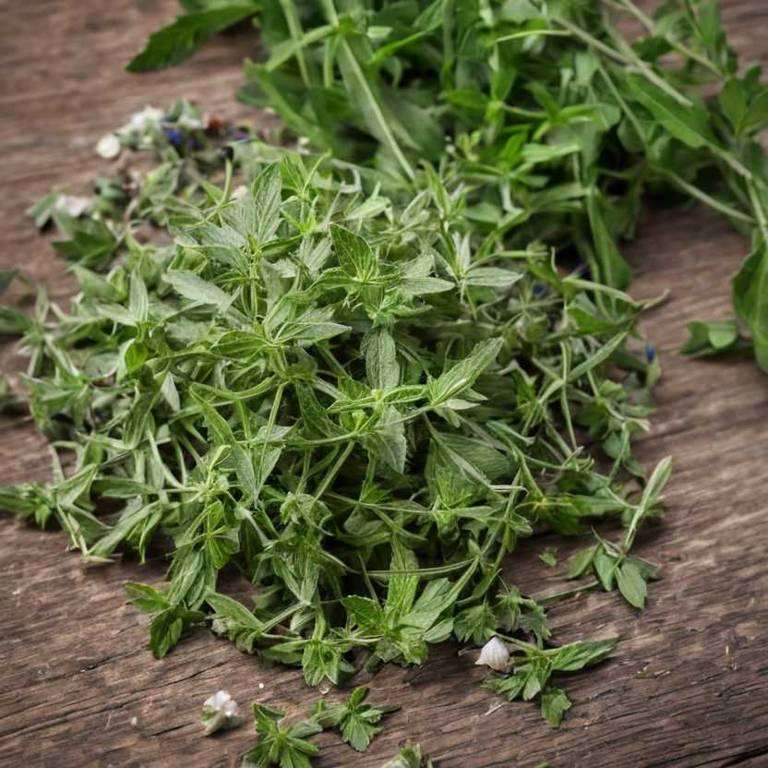10 Best Nepeta Cataria Preparations

The best medicinal preparations of Nepeta cataria are teas, decoctions, tinctures, essential oils, and syrups, each offering unique benefits for health and wellness.
Herbal teas made from dried Nepeta cataria leaves are commonly used to soothe anxiety and promote relaxation.
Decoctions, which involve boiling the herb, are often employed for their stronger therapeutic effects.
Tinctures provide a concentrated form of the herb, ideal for targeted herbal remedies.
Essential oils derived from Nepeta cataria are used in aromatherapy to alleviate stress and improve mood, while syrups offer a palatable option for children or those with respiratory issues.
Below there's a list of the 10 best herbal preparations of nepeta cataria for medicinal purposes.
1. Teas
Nepeta cataria teas is commonly used to alleviate symptoms of anxiety, insomnia, and digestive issues.
This herbal preparation is often employed to treat ailments such as stress-related disorders, restlessness, and gastrointestinal discomfort. The most common medicinal uses include promoting relaxation, improving sleep quality, and easing stomach cramps. The bioactive constituents responsible for these effects include nepetalactone, flavonoids, terpenoids, and essential oils.
These compounds contribute to its calming, antispasmodic, and mild sedative properties.

2. Decoctions
Nepeta cataria decoctions is commonly used to alleviate symptoms of anxiety, insomnia, and digestive issues.
This herbal preparation is often employed to treat ailments such as nervous tension, restlessness, and gastrointestinal discomfort. The most common medicinal uses include calming the nervous system and promoting relaxation. The bioactive constituents responsible for these effects include nepetalactone, flavonoids, and essential oils.
These compounds contribute to the plant’s sedative, antispasmodic, and digestive properties.

3. Tinctures
Nepeta cataria tinctures is commonly used to treat anxiety, insomnia, and digestive issues.
These tinctures are often employed to alleviate symptoms of nervousness, promote relaxation, and improve sleep quality. They are also used for their potential anti-inflammatory and antispasmodic properties. The most common ailments treated include stress-related disorders, gastrointestinal discomfort, and muscle spasms.
The bioactive constituents responsible for these effects include nepetalactone, flavonoids, iridoids, and essential oils, which contribute to the plant's calming and therapeutic actions.

5. Syrups
Nepeta cataria syrups is commonly used to relieve symptoms of anxiety, insomnia, and restlessness due to its calming effects.
This herbal preparation is often employed to treat ailments such as nervous tension, sleep disorders, and even mild cases of depression. The most common medicinal uses include aiding relaxation, improving sleep quality, and reducing stress-related symptoms. The bioactive constituents responsible for these effects include nepetalactone, flavonoids, and essential oils, which contribute to its sedative and anxiolytic properties.
These compounds interact with the central nervous system to promote a sense of calm and tranquility.

6. Capsules
Nepeta cataria capsules is commonly used to alleviate symptoms of anxiety, insomnia, and digestive issues.
This herbal preparation is widely recognized for its calming effects and is often used to treat conditions such as stress-related disorders, restlessness, and gastrointestinal discomfort. The most common medicinal uses include reducing anxiety, improving sleep quality, and soothing digestive tract inflammation. The bioactive constituents responsible for these effects include nepetalactone, flavonoids, iridoids, and volatile oils, which contribute to its sedative, antispasmodic, and anti-inflammatory properties.
These compounds work synergistically to provide the therapeutic benefits associated with Nepeta cataria.

7. Lozenges
Nepeta cataria lozenges is commonly used to relieve symptoms of respiratory conditions such as sore throat, cough, and inflammation.
These lozenges are often employed to treat ailments like colds, flu, and bronchitis due to their soothing and antiseptic properties. The bioactive constituents responsible for these effects include nepetalactone, which has mild sedative and antispasmodic properties, as well as flavonoids and essential oils that contribute to its anti-inflammatory and antimicrobial actions. Additionally, the plant's compounds may help reduce irritation and promote healing in the throat.
Overall, nepeta cataria lozenges are valued for their natural approach to managing mild respiratory discomfort.

8. Oils
Nepeta cataria oils is commonly used to treat various ailments such as anxiety, insomnia, and digestive issues.
The essential oil derived from this plant is widely recognized for its calming and sedative effects, making it a popular choice in aromatherapy and herbal medicine. It is often used to alleviate symptoms of stress, promote relaxation, and improve sleep quality. The bioactive constituents responsible for these effects include nepetalactone, which has sedative and anxiolytic properties, as well as other compounds like linalool and geraniol that contribute to its therapeutic benefits.
Additionally, nepeta cataria oils may help with gastrointestinal discomfort and have mild antimicrobial properties.

9. Creams
Nepeta cataria creams is commonly used to relieve symptoms of anxiety, insomnia, and skin irritations.
These creams are often applied topically to treat conditions such as eczema, psoriasis, and insect bites due to their soothing and anti-inflammatory properties. The most common medicinal uses include calming effects on the nervous system and reducing skin inflammation. Bioactive constituents such as nepetalactone, flavonoids, and essential oils contribute to its medicinal properties.
These compounds exhibit sedative, antimicrobial, and analgesic effects, making the cream a popular choice in alternative medicine.

10. Linctuses
Nepeta cataria linctuses is commonly used to relieve symptoms of respiratory conditions such as coughs, sore throats, and bronchitis.
The most common medicinal uses of this herbal preparation include treating coughs, congestion, and inflammation of the respiratory tract. It is also used to soothe irritation in the throat and reduce the frequency of coughing. The bioactive constituents responsible for its medicinal properties include volatile oils such as nepetalactone, which have expectorant and antispasmodic effects.
Additionally, compounds like flavonoids and phenolic acids contribute to its anti-inflammatory and antimicrobial activities.
